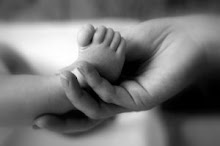Behavioural and Cognitive Therapy
This has been used for many years, the idea behind Cognitive Behaviour Therapy (CBT) is that what people think affects how they feel emotionally and also alters what they do. The treatment involves working with a therapist to identify and then change any extreme thinking and unhelpful behaviour. By doing this, the result is a significant improvement in how the person feels and lives their day to day life.
To find a registered therapist in your area visit the British Association for Behavioural and Cognitive Psychotherapies here
Hypnotherapy
Some woman find that the effects of hypnotherapy can be almost instant where others take several session to see an improvement. The treatment involves the therapist examining your past to help you emotions which may be affecting your present life as well as helping you to think differently about areas of your life which may be troubling you.
To find a registered therapist near you contact The National Register of Hypnotherapist’s and Psychotherapists here.
Crystal Healing
It is believed that crystals are subtle energy forms which can have a tremendously therapeutic effect on women suffering from Post Natal Depression. Rose Quartz is an especially powerful healer which, when worn continuously or placed under your pillow at night can ease the symptoms of insomnia and promote self acceptance and love. You may also benefit from receiving Crystal Therapy from a qualified Crystal Healer who will be able to target the specific symptoms of your illness and help to bring you back into balance.
To find a qualified Crystal Healer visit the Affiliation of Crystal Healing Organisations website here
Massage
The benefits of massage are well known for helping with an array of illnesses, some woman have found that it can be helpful when recovering from Post Natal Depression. Massage will relax you, give you some valuable time to yourself and help you to manage your stress levels.
To find a qualified aroma therapist in your area visit the Aromatherapy Consortium here.
This therapy can be very helpful the treatment involves the therapist manipulation the reflex points on the sole of your feet in order to get the body to heal itself. To find a reflexologist in your area visit the Association of Reflexologist’s Website
here.
Some G.P. are more open to alternative therapies than other and may be able to suggest a suitable therapist if this is not the case and unfortunately it is still true that many doctors would prefer that you took medication before you try any alternatives, then make sure that the therapist is registered with a recognised body before visiting them.



